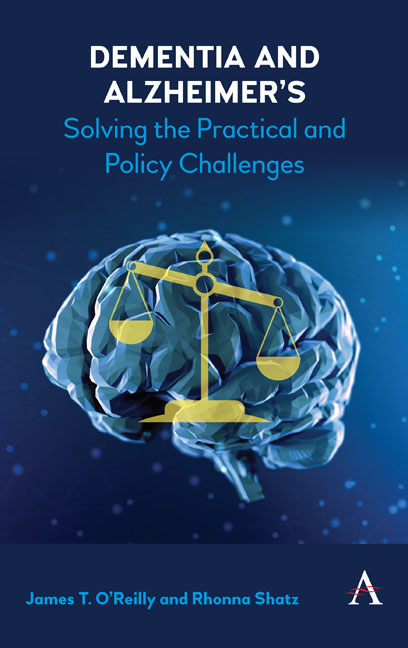Book contents
- Frontmatter
- Contents
- 1 Introduction
- 2 The family dynamics of dementia
- 3 Tort liability related to dementia
- 4 Dementia and private insurance
- 5 Medicare, Medicaid, disability and other government benefits
- 6 Dementia and residential care facilities
- 7 Adult protective services in dementia cases
- 8 Dementia and financial issues
- 9 Dementia in probate and guardianship
- 10 Dementia and employment issues
- 11 Drug research and new product developments for dementia
- 12 Dementia and criminal justice
- 13 Understanding your expert's advice about brain deterioration
- 14 Understanding the causes of Alzheimer's disease
- Appendix: Finding medical reference sources about dementia
- Index
10 - Dementia and employment issues
- Frontmatter
- Contents
- 1 Introduction
- 2 The family dynamics of dementia
- 3 Tort liability related to dementia
- 4 Dementia and private insurance
- 5 Medicare, Medicaid, disability and other government benefits
- 6 Dementia and residential care facilities
- 7 Adult protective services in dementia cases
- 8 Dementia and financial issues
- 9 Dementia in probate and guardianship
- 10 Dementia and employment issues
- 11 Drug research and new product developments for dementia
- 12 Dementia and criminal justice
- 13 Understanding your expert's advice about brain deterioration
- 14 Understanding the causes of Alzheimer's disease
- Appendix: Finding medical reference sources about dementia
- Index
Summary
Overview of employment issues
Dementia occurring late in life is not likely to involve any employment issue for the patient, because a company employing a worker in his or her eighties is likely to be the rare exception. But early onset dementia at ages 45–65 is possible, and it could pose significant worker performance issues, with discipline consequences, and pose questions about access to remedies for persons claiming dementia disability status.
Dementia is an unusual disability to be claimed in the context of a workplace, because popular culture associates dementia with old age. Visual judgment of the active worker may be deceiving; the physical appearance of the employee is unchanged in early stages, but the brain is degenerating in varying degrees in varying aspects of cognition and memory. How astute and careful the “previously normal” worker had been will determine how their changes in performance may be noticed, and how these changes may then be invoked against them at the time of termination.
Dementia affects employees’ performance of cognitive tasks, and performance deficits affect the likelihood of termination of the employee. The Equal Employment Opportunity Commission (EEOC) guidance documents can be used by employers for specific behavioral cases, to terminate employees for severe breaches of generally applicable workplace discipline standards.
Most cases of disputes over dementia-related employment actions do not appear in the appellate reports. Cases do not get that far. In a 2007 case, a prison supervisor sent a prison employee to see the state psychologist to determine whether incidents of insubordination and confusion were “willful or whether there was another underlying reason for her behavior and performance.” She was not assigned to another job because no appropriate position was said to be available. The news report of the case then noted: “Carver's lawsuit apparently accepts the state's diagnosis of dementia. It seeks damages for economic loss, mental anguish and emotional distress and legal fees.” These cases of workplace dementia-related conflicts are so few that one may expect to receive news media coverage when they reach the public's awareness.
- Type
- Chapter
- Information
- Dementia and Alzheimer'sSolving the Practical and Policy Challenges, pp. 69 - 74Publisher: Anthem PressPrint publication year: 2019



